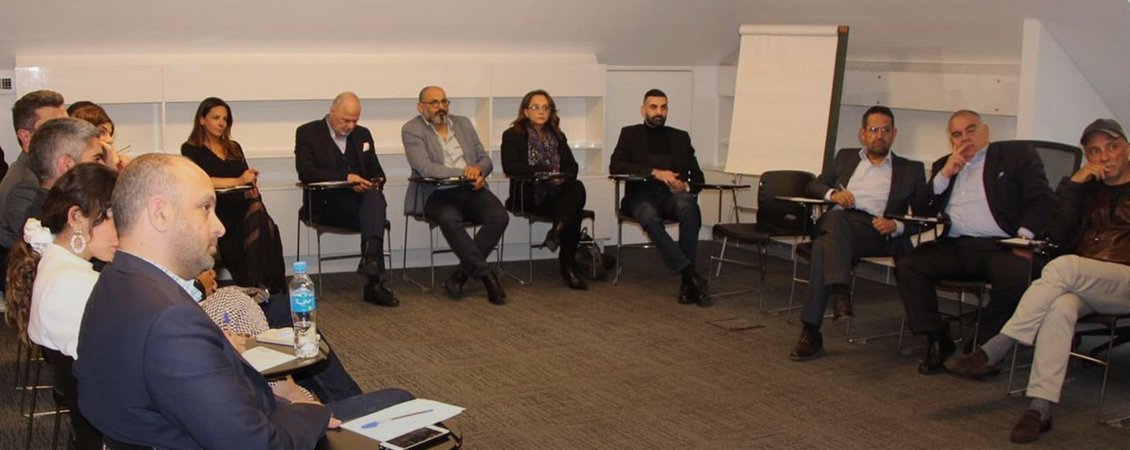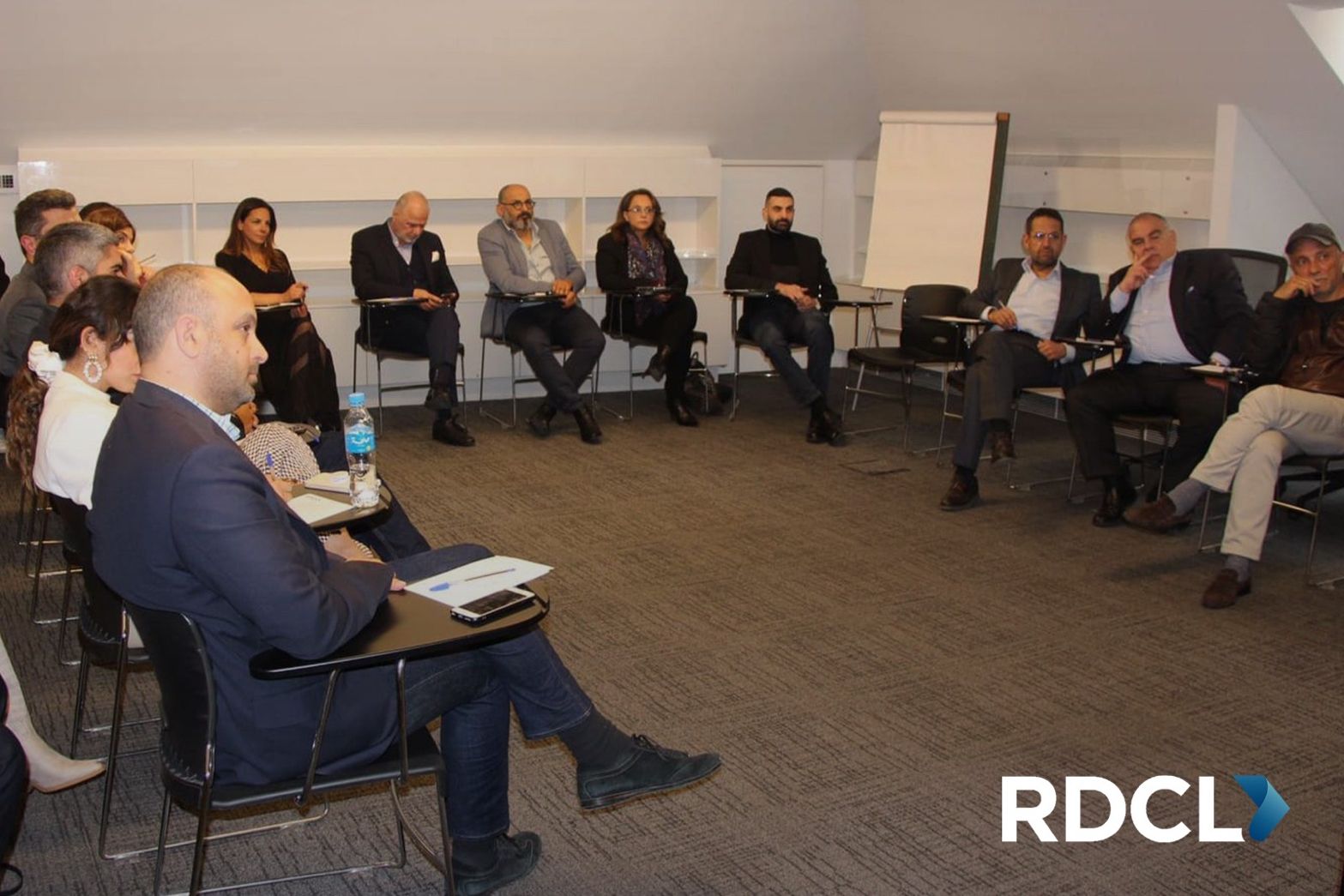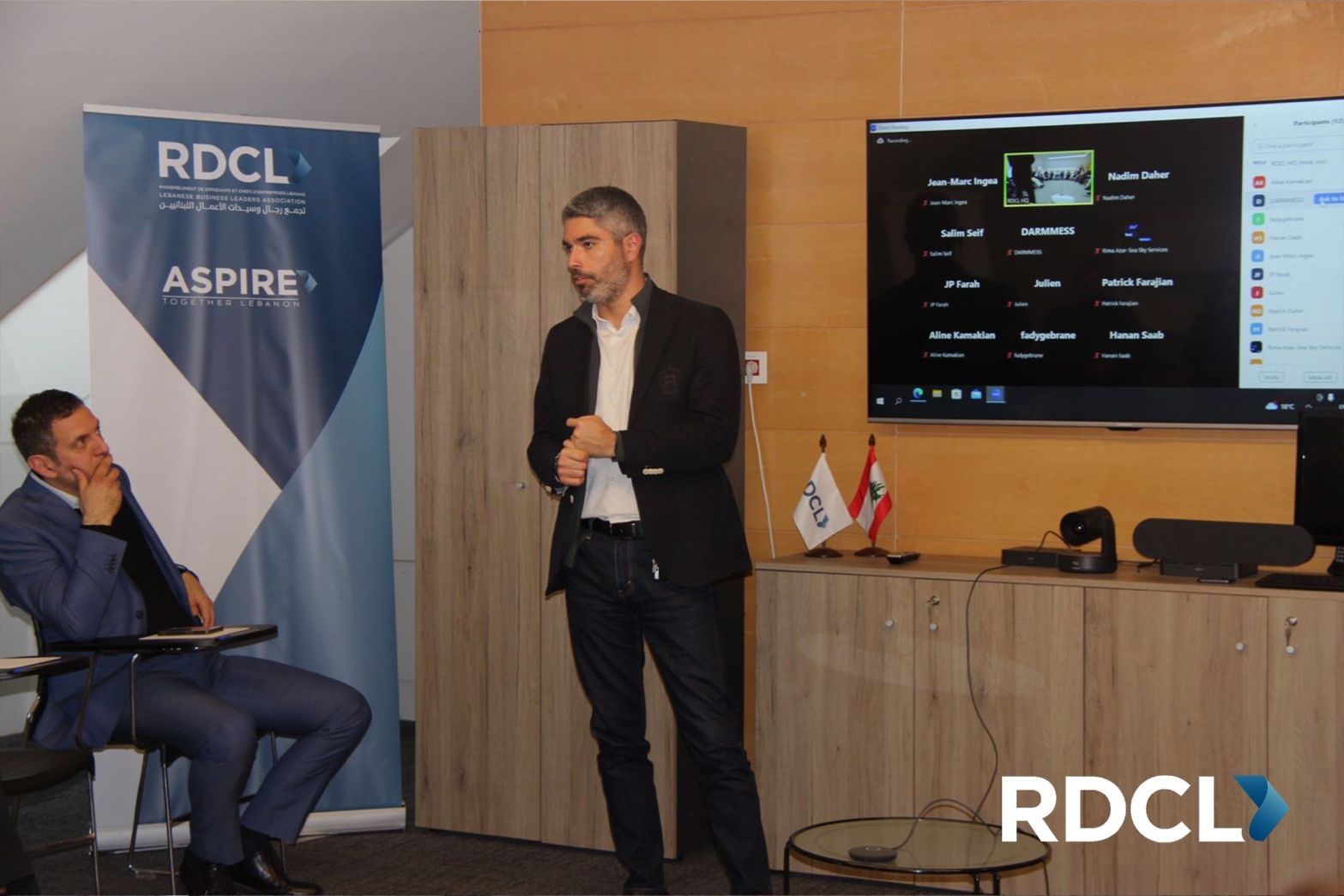Lebanon’s Financial Mismanagement and the PFM Reform Plan
Lebanon’s Financial Mismanagement and the PFM Reform Plan
March 6, 2024
Within the framework of the ASPIRE Project, RDCL organized a roundtable discussion titled “Financial Solutions: A Clustered Approach”, at RDCL premises, in partnership with USAID’s Trade and Investment Facilitation (TIF) Project.
Dr. Sami Nader, RDCL lead technical expert under the partnership with TIF, made the opening remarks and moderated the discussion that took place, which aimed to tackle access to finance and the challenges faced in the banking sector, as well as supply chain financing.
Mr. Danny Maalouli, TIF’s Investment Lead explained that TIF is setting up a brokage firm to do factoring and reverse factoring. Moreover, he said that, even if the banking sector today recovers, there is still a need for an alternative financial system in Lebanon, highlighting that TIF is working towards supporting Lebanese businesses access finance through different types of funds.
Mr. Anthony Jabbour, Managing Director of Cedar Oxygen, an independent economic recovery platform established in Luxembourg, introduced the platform, its objectives and the new LEEF fund.
The discussion then focused on whether funds have replaced the banking sector, given their prominent role in the Lebanese economy today. The role of the agri-food industry and its respective value chain and export potential was of particular focus, given TIF’s emphasis on food security.
Some key recommendations that were reached through the discussion were the importance of applying the Decentralization Renewable Energy law, leveraging cost-saving measures such as transitioning towards solar energy, and ensuring that ISO standards are met to expand the reach of Lebanese exports to foreign markets. The reason quality control was brought up is because funds alone will not suffice to increase exports. It is the entire value chain that is important and must be worked on.
The discussion was attended by representatives from USAID Lebanon, as well as many RDCL members representing several domains from the private sector. Participants shared their thoughts and questions, and tackled challenges and problems currently faced and their impacts on all sectors, in addition to the potential opportunities.



